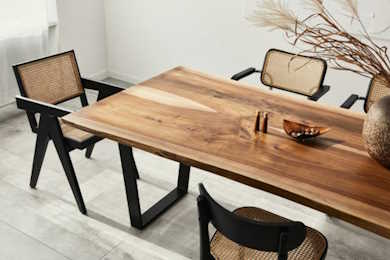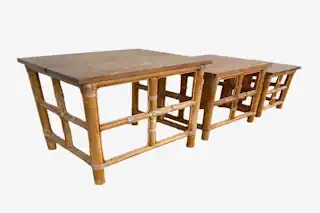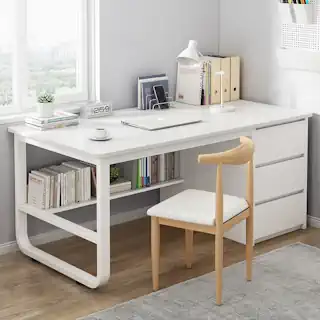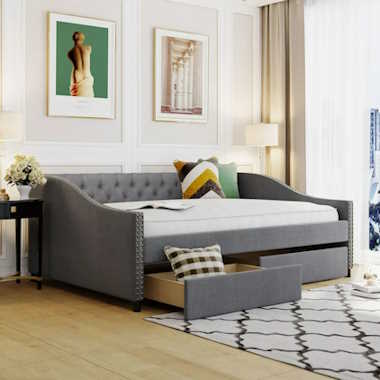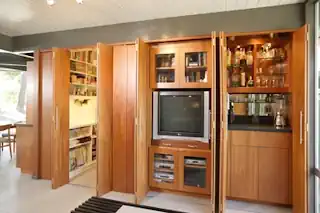Choosing the Perfect Study Desk: Your Essential Guide to Productivity and Comfort
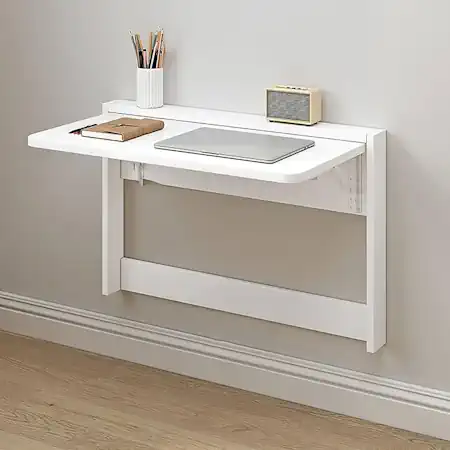
A good study table or desk is the command center of productivity, a space that plays a pivotal role in the quality of work and study. Whether you’re a rigorous student, a dedicated remote worker, or an avid home-office user, the right desk can improve your focus, keep you organized, and even influence your postural health. This guide is your compass to navigating the vast sea of options when it comes to selecting a study desk that marries functionality with your individual needs and aesthetic preferences.
Understanding the Importance of Your Study Desk
Before you succumb to the lure of a stylish desk, it’s important to highlight the relationship between your study desk and your daily routine. A well-chosen desk can elevate your motivation, streamline your workflow, and provide a sense of professionalism, even in your most casual settings. Conversely, a poorly chosen desk might result in unnecessary clutter, diminished focus, and even back or neck problems from hours of unsuitable positioning.
Begin by recognizing that your own study room or desk is more than a mere piece of furniture. It’s an investment in your education, your work, and, most importantly, in yourself. When you stride towards a desk that not only fits your space but enables your endeavors, you acknowledge the value your workspace holds in achieving your goals.
The Dimensions of Your Desk and Workspace
Size does matter, and in the case of your study table or desk, it’s one of the most critical factors to consider. A desk too expansive for your space can lead to a cramped environment and potential organizational chaos. Conversely, a desk that’s too small leaves you longing for more work surface.
Choosing the Right Dimensions
Height: The ideal desk or table height is when your elbows can comfortably rest at a 90-degree angle on the table, with your feet flat on the floor.
Width and Depth: These measurements depend largely on your work habits and required workspace. A small desk may suffice for a laptop and some notepads, while wider dimensions accommodate multiple screens and study materials.
Space Constraints
Appreciate your room’s architecture and available space. Is there a nook that needs filling with a compact desk? Conversely, does the space demand a larger, central desk that can be the focal point of your work table or room’s design?
Corner Desks: These are great space-savers for awkward corners in a child’s room and can often provide more surface area compared to standard, linear desks.
Foldable Desks: For extreme space limitations, consider a foldable desk that can extend when needed and then be tucked away.
Storage and Organization
An organized workspace is a focused workspace. Storage features must complement your required work tools and office supplies, preventing your desk from becoming a black hole of lost items.
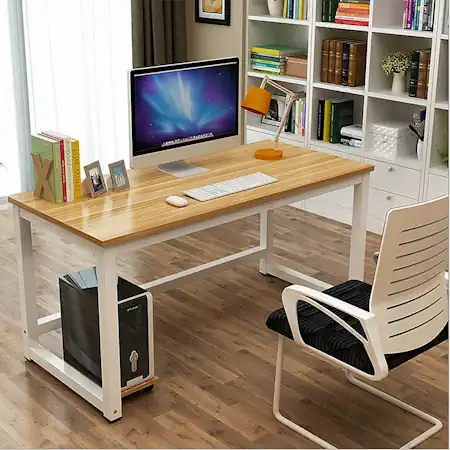
Desk with Drawers and Shelves
Incorporating a desk or dining table with ample drawer space and shelves can work wonders in maintaining a tidy space. Drawers are perfect for personal items and loose papers, while shelves facilitate quick access to frequently used books and tools.
Cable Management: Opt for desks with built-in cable organizers to prevent a jungle of cords and wires.
Modular Desks: These often offer customizable storage options – additional units can be added or removed depending on floor space and your organizational needs.
Material and Aesthetics
The material of your desk not only determines its durability but also affects its visual appeal and your overall workspace comfort.
Wood Desks
A wooden desk, whether solid or composite, offers a touch of warmth and traditional style. It’s often the sturdier choice, with solid wood lasting generations if properly cared for.
Veneers: Provide the look of solid wood at a more budget-friendly price, albeit with slightly less resilience.
Metal and Glass Desks
These modern materials bring the wooden study table an air of contemporary sophistication. Metal frames can ensure stability, while glass surfaces add a feeling of lightness to the desk.
Durability: Metal and glass desks are more susceptible to scratches and can be heavier or less portable than their wooden counterparts.
Ergonomics and Comfort
Your study desk should not just enhance productivity but also promote comfort, an important consideration for those long study sessions and work marathons.
Adjustability
Consider a desk with height and tilt adjustment features to accommodate different seating options, allowing you to sit comfortably and maintain a comfortable posture throughout the day.
Ergonomic Chairs: Pair your desk with an adjustable, ergonomic chair to reduce the risk of musculoskeletal strain.
Personalizing Your Desk Choice
Your tastes, work patterns, and the visual aesthetic of your space will impact your desk choice. It’s essential to ensure the desk you select resonates with your style while fulfilling its functional role.
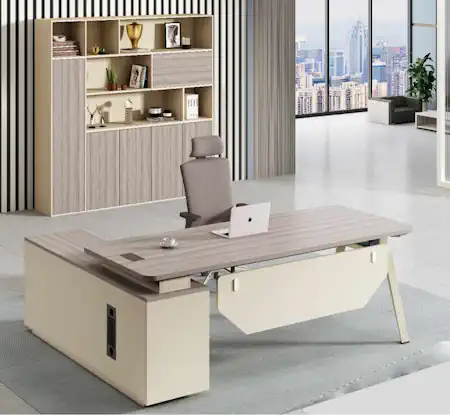
Your Working Style
Do you tend to sprawl your work all over the desk or do you maintain a minimalist surface? Your working habits should guide the style of your desk.
L-Shaped Desks: These are excellent for multitaskers and those who like to spread out. One arm can be for active work while the other can house your secondary tasks and resources.
Executive Desks: For those who want to make a statement, executive desks command attention and radiate an aura of importance and prestige. They often come with ample storage space.
Where to Shop for a Study Desks
There are various avenues to purchase a study desk. Knowing where to look for a suitable study table can save you money and time.
Physical Stores
Home goods stores, office supply outlets, and secondhand shops offer the advantage of seeing and testing the desk in person before making a decision.
Sales and Discounts: Keep an eye out for clearance sales, which can often lead to substantial savings.
Online
The internet is a treasure trove of desk options. Shopping online provides convenience and allows you to compare a wide range of styles and prices.
Customer Reviews: Prioritize sites with reviews to gain insight into the durability and comfort of your potential desks.
DIY and Custom-Made Study Desks or Study Tables
For a truly personalized desk, you can opt to build one yourself or work with a carpenter to create a bespoke piece that perfectly fits your space and needs.
Upcycling: Consider refurbishing an old desk or using other items, like doors or pallets, to create a unique workspace.
Setting Up Your Desk
After you’ve purchased the right study table and desk, setting it up is vital to attain the most value from it.
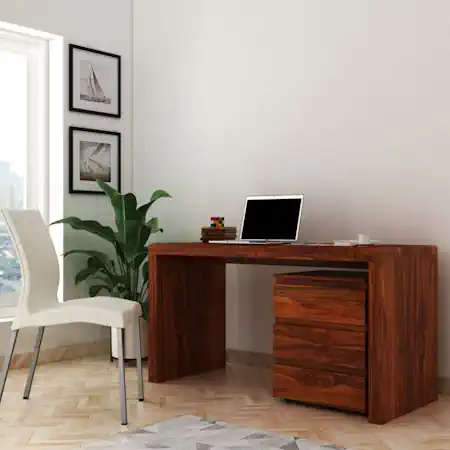
Placement
The location of your study desk within the room can affect natural lighting, traffic flow, and your overall productivity. If possible, align your desk in such a way that it offers a nice view and is not directly in line with a door, which can disrupt your focus.
Lighting: A well-lit workspace is essential. Natural lighting is preferable, but for those late-night study sessions, a good desk lamp is indispensable.
Organizing Your Workspace and Storage Space
Implement an organization system from the outset. Use storage compartments thoughtfully, and ensure that everything has its place.
The 5S System: Sort, Set in Order, Shine, Standardize, and Sustain. This lean methodology can be incredibly effective in maintaining a clean and efficient desk.
Conclusion: The Study Desk as a Partner in Success
In closing, the study desk you choose should be reflective of your personal needs and tastes. It should not only bolster your academic and professional pursuits but also provide a comfortable and organized space conducive to learning and working. Take the time to thoughtfully consider the factors listed in this guide, and when you finally sit down at that newly assembled desk, you’ll be taking a stand not just for your work, but for your well-being. After all, the greatest accomplishments often start at the right desk.
Frequently Asked Questions (FAQ)
What’s the best material for a study desk or study table?
The best material depends on your preferences and needs. Wood desks offer warmth and durability, metal and glass desks bring a modern look and feel, and composite materials can provide budget-friendly options without sacrificing style.
How can I decide between a standard desk and an ergonomic one?
Consider the amount of time you’ll be spending at your desk. If you work or study for long hours, an ergonomic desk with adjustability for height and tilt can help reduce strain and promote better posture. Sitting position is an important consideration in any ergonomic design. Desk height is one of the most crucial factors for good posture and a comfortable seating position.
Can L-shaped desks fit in small spaces?
L-shaped desks are versatile but require thoughtful placement. They can fit into corners to maximize space efficiency, making them suitable for both large and small rooms, depending on their size.
Is it worth purchasing a desk online without seeing it first?
Yes, it can be worth it if you do thorough research. Look for reputable websites with detailed product descriptions, dimensions, customer reviews, and good return policies to mitigate the risks of online shopping.
How do I keep my desk organized?
Start with a clean surface and introduce organization tools like drawers, holders, and cable management systems. Adopting the 5S System (Sort, Set in Order, Shine, Standardize, Sustain) can also help keep your desk organized over time.
What should I do if my desk isn’t comfortable after a few weeks of use?
Consider adding ergonomic accessories like a chair cushion, a footrest, or an adjustable monitor stand. If discomfort persists, re-evaluate the desk’s height and your chair’s ergonomics, as they play critical roles in overall comfort.
Choosing the right study desk involves considering material, ergonomics, and your work habits. By addressing these questions, you can select a desk that not only looks great in your space but also enhances your productivity and well-being.
